Iran deal is not cause for high-fives at the White House
- Published
- comments
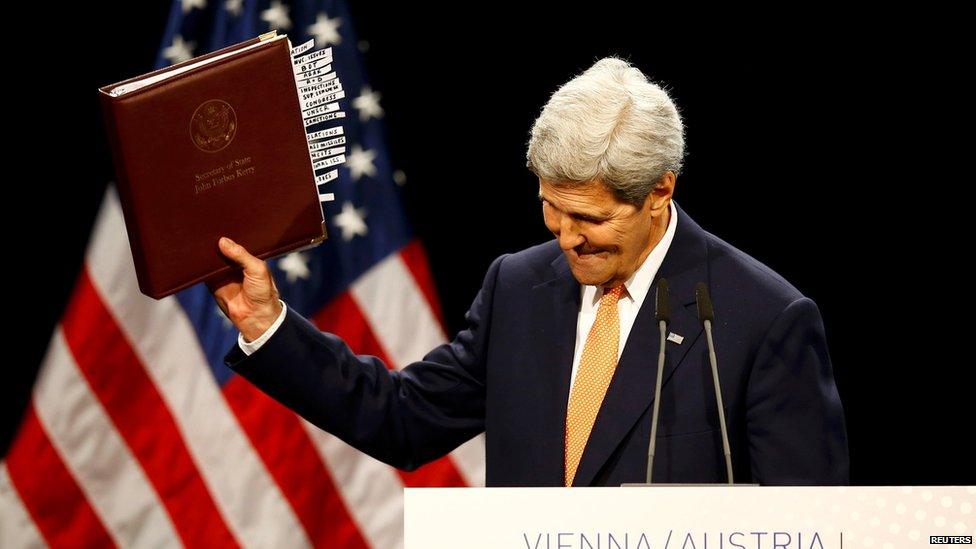
If you like your criticism to come in torrents, then it's been a good day to be in Washington - the airwaves have been thick with it and my email inbox is brimming over.
The chairman of the Foreign Relations Committee, Senator Bob Corker, kicked it off saying of the Iran deal that he started "from a place of deep scepticism" about whether the agreement would achieve the objective of preventing Iran from obtaining a nuclear weapon. That's on the muted end of the scale.
"It's going to hand a dangerous regime billions of dollars in sanctions relief while paving the way for a nuclear Iran," John Boehner, the speaker of the House, said.
"And this isn't about Democrats or Republicans, it's not a partisan issue at all, it's about right versus wrong.
"If in fact it's as bad a deal as I think it is at this moment, we're going to do everything we can to stop it."
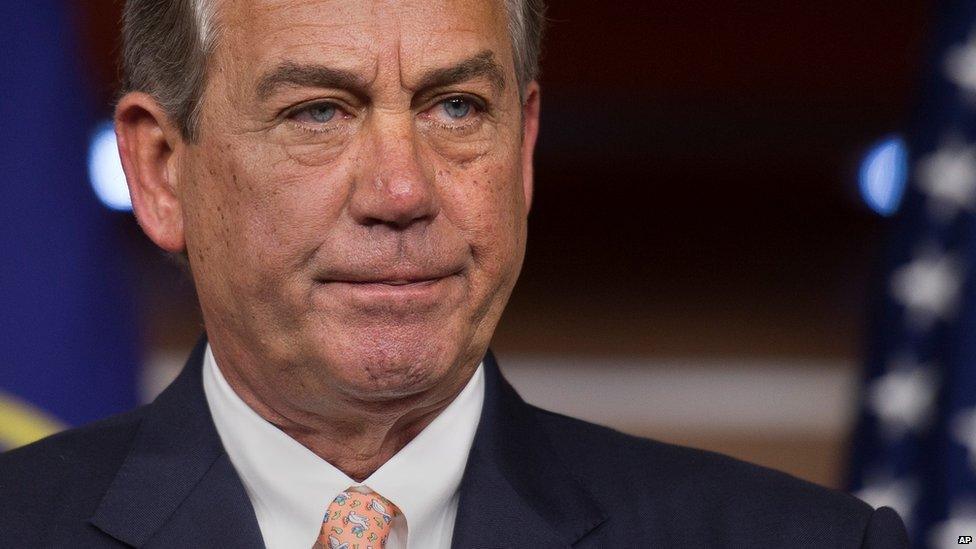
House Speaker John Boehner has sharply criticised the deal
And let's just whizz through some of the other attacks from the Republican presidential hopefuls.
"The Persians are laughing at us" - Donald Trump
"A dangerous, deeply flawed, and short-sighted deal" - Jeb Bush
Obama is "playing a dangerous game with our national security" - Chris Christie
"The president has given concession after concession to a regime that has American blood on its hands" - Marco Rubio.
Get the picture? But you know what has struck me more?
It has been the very muted response from the president's own supporters. There is no cheering, no high-fiving, no whooping or hollering.

Could US Congress torpedo the deal?
It has 60 days to review the agreement
During that time, President Obama cannot lift the sanctions Congress has imposed on Iran
Congress can reject the deal, and keep the sanctions in place, but Mr Obama can veto that
Congress would need a two-thirds majority to overturn the veto, which is unlikely
But the president will try to sell the deal to Congress and the American people in weeks ahead

This deal may be historic, it may have moved the prospect of a full scale Middle East war further away, it may stop a nuclear arms race in the region, it may put on a new footing the toxic relations between Iran and the United States - but I'm not hearing champagne corks popping. And that MAY be because of my extensive use of the word may.
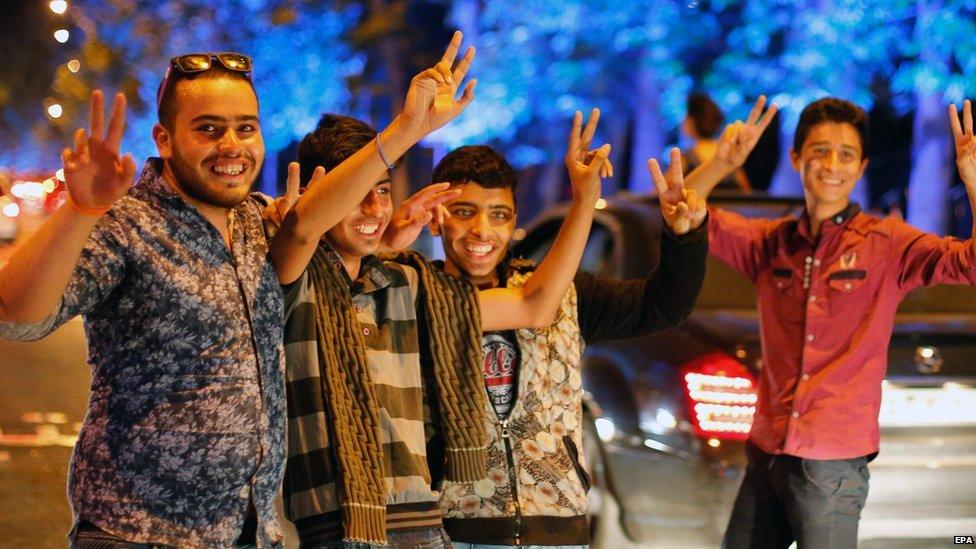
Tehran was in a much more celebratory mood on Tuesday
And it may also be because this is only being described as a "good" deal. Until a few weeks ago President Obama's key adviser on the deal was Dr Philip Gordon. He wrote a thoughtful article for Politico magazine where he said "the perfect is the enemy of the good".
And the deal hammered out exhaustingly in Vienna is not perfect. I've heard others who work for the administration describe how they would sit in the White House and watch the pundits and opponents go on the TV and say "what the president needs to do is get a better deal". And they would sit there - throwing in an expletive or two - and think "no kidding? Why didn't we think of that?"
By which, the pundits meant Iran needed to commit to ending its nuclear ambitions, agree to recognise the state of Israel, vow that it would no longer support Hezbollah, the Syrians or Shia militias, and then let anyone check in at any time to make sure they were being true to the word.
Ideally Iran would be waving a white flag while they walked into the conference room
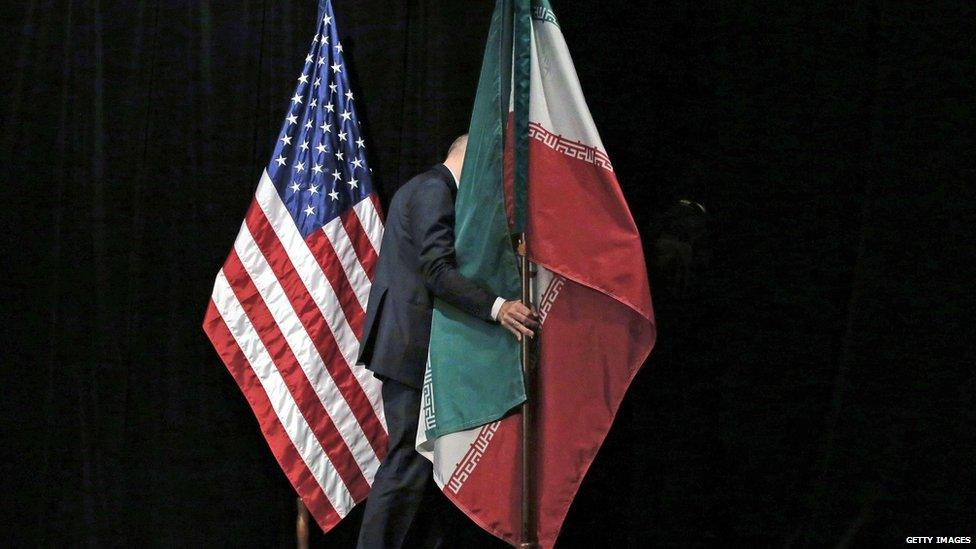
But in the real world there was never going to be a deal if those were the demands. So what you are left with is an agreement which gives a lot of people - both Republican and Democrat - a lot of concerns, about the ending of the arms embargo on Iran, about how the verification process will work for the UN inspectors, about what happens at the end of the 10 years.
And ultimately the concern that this is a deal which doesn't see Iran's nuclear programme dismantled, it only halts the proliferation. There are myriad questions and entirely legitimate concerns.
And that has left some saying no deal would be better than this. While others say the West should have hung tough for a better deal.
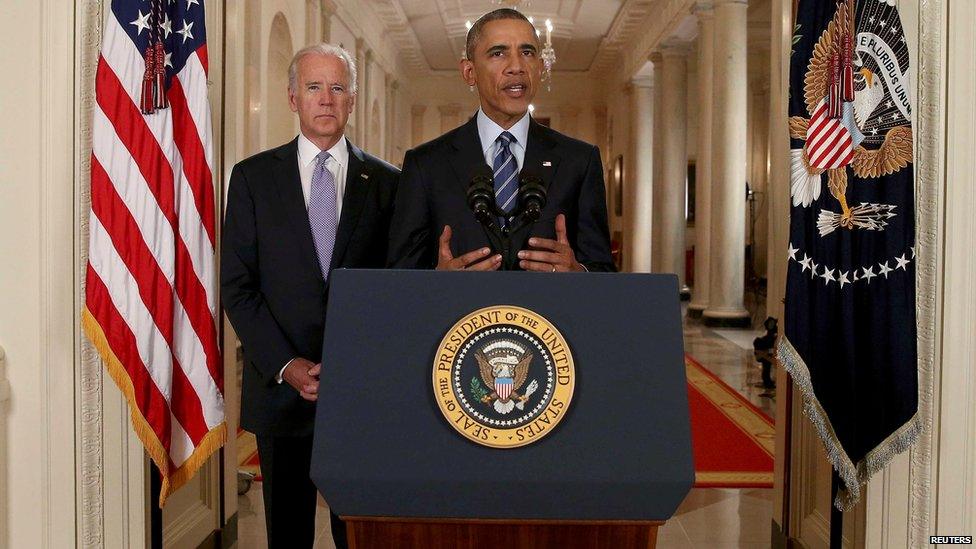
Obama announces the deal from the East Room of the White House
But those sleep-deprived diplomats now wearily making their way home from Vienna after this drafting marathon would no doubt argue they have come with away with the best and only agreement that was available.
The problem is it's a bit like Churchill's maxim about democracy, that it's the worst form of government... except for all the others.
I don't know much about retail, but am guessing it's not much of a sales pitch to say: "Buy this deal, it's the least worst available in the shop."
Politics doesn't do nuance very well. Black and white is a lot easier. The president now has to sell nuance.